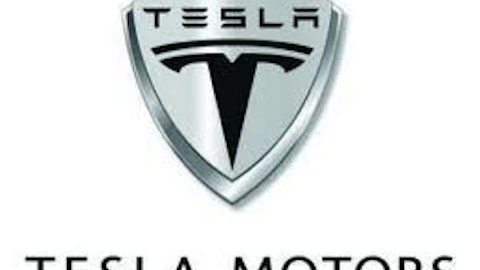
According to NBCNews, Ford Motor Company (NYSE:F) has issued the latest price cut as it lowered the price on its Focus EV by $4,000 with a new MSRP for the model of $35,200. Ford Motor Company (NYSE:F) believes the price change will help the Focus better compete with other electric vehicles that have also seen recent drops in price. In January, Nissan Motor cut the price of the 2013 Leaf by $6,400 and lowered the model’s sticker price to under $30,000.
Automakers have been under governmental pressure to improve the fuel economy of their fleets by over 50% in the coming years. And at least nine states, along with California, are pushing for electric, hydrogen-powered, and hybrid vehicles to make up 15% of new-car sales by 2025. In April, General Motors Company (NYSE:GM) CEO Dan Akerson estimated that the Chevy Volt, currently priced at just over $39,000, could drop in price by $7,000 to $10,000.
Remembering when hybrids first hit the market
The recent price drops among several automakers are similar to what occurred when hybrid vehicles were first introduced to consumers. Quoted on Bloomberg Businessweek, Jeremy Acevedo, a pricing analyst with auto researcher Edmunds.com, believes the segment isn’t strong enough to support the price points originally set by automakers.
Acevedo predicts the electric vehicle market will evolve in a similar way to hybrid technology. Hybrid cars currently make up 4% of car sales, but took a decade to gain acceptance in the U.S. car market. Hybridcars.com reports that while electric plug-in cars have doubled since the start of 2013, they account for less than 1% of U.S. car sales.
Along with their current lower prices, electric vehicles come with incentives in the form of government tax credits and manufacturer rebates. Hybridcars.com ranks the Chevy Volt as the U.S.’s top-selling electric model in June at 2,698 units, a distinction aided by its nearly $6,200 in incentives. In second place came Nissan’s Leaf with 2,225 units sold and just under $7,000 in incentives.
Ford works on making the technology accessible
In 2012, Ford Motor Company (NYSE:F) introduced, in North America, six new vehicles that use electric power, including hybrids, plug-in hybrids, and an electric vehicle. The company is working on simplifying the charging process, considered the single biggest adjustment consumers need to make when switching over to electric cars.
Ford vehicles in the U.S. have advanced communication systems that give the driver information on how to maximize the driving range of their vehicles, find charging stations based on their location, and determine how far they can drive before their next charge.
Since the Ford Motor Company (NYSE:F) Electric rolled into the market in 2012, Ford Motor Company (NYSE:F) has built 2,517 vehicles and sold 1,593. For the first six months of 2013, Ford sold 900 electric models. The company’s June sales of small cars grew 39% over last year; the 35,851 units sold included models like the Fiesta, C-MAX, and the Focus, all of which use a gas-powered engine. Ford Motor Company (NYSE:F)’s overall car sales through June were up 12%.
Nissan’s Leaf catching up to the Volt in unit sales
Nissan’s Leaf came in second place in number of units sold in June and the model had record sales in March, April, and May of this year, according to hybridcars.com. The Leaf is the only mid-sized, five-passenger electric car priced under $30,000 and one of only three models sold in all 50 states.
By Nissan’s fiscal year ending March 31, unit sales had reached 62,000 and made up 1.3% of total units sold for the year. Units sales through June 2013 totaled 9,839, up 212.5% from unit sales through June 2012 of 3,148.
General Motors’ top seller still relies on gas
The Chevrolet Volt has a backup gas-powered engine generator that kicks in when the electric charge is depleted, which may explain part of the reason for its popularity among “electrics.” General Motors Company (NYSE:GM) claims that Volt owners have traveled more than 100 million electric miles since the car’s debut two years ago.
The company estimates that the average owner operates the car in pure electric mode more than 65% of the time. Despite a higher price tag of over $39,000, the unit sales of the Volt through June were up 11.8% to 9,855 over last year and made up about 1% of total General Motors Company (NYSE:GM) vehicles sold in June.
My Foolish conclusion
It will probably take a few more years before electric cars catch on and automakers start to see sales increase. The three automakers mentioned have stressed that they are fully committed to the technology despite the slow sales. For now, the average consumer is still more likely to view an electric car as a risky, more expensive purchase than a gas-powered car. However, high oil prices and word-of-mouth testimonials from current electric car owners could change that.
Electric cars also need the right infrastructure in place — Ford Motor Company (NYSE:F) mentioned on its site how utilities and other organizations are looking at ways to provide power to plug-in vehicles that meet consumer needs. As the technology improves and automakers prove the reliability of their models, consumers should eventually buy in.
The article Automakers Slashing Prices of Electric Cars originally appeared on Fool.com and is written by Eileen Rojas.
Eileen Rojas has no position in any stocks mentioned. The Motley Fool recommends Ford and General Motors. The Motley Fool owns shares of Ford. Eileen is a member of The Motley Fool Blog Network — entries represent the personal opinion of the blogger and are not formally edited.
Copyright © 1995 – 2013 The Motley Fool, LLC. All rights reserved. The Motley Fool has a disclosure policy.

